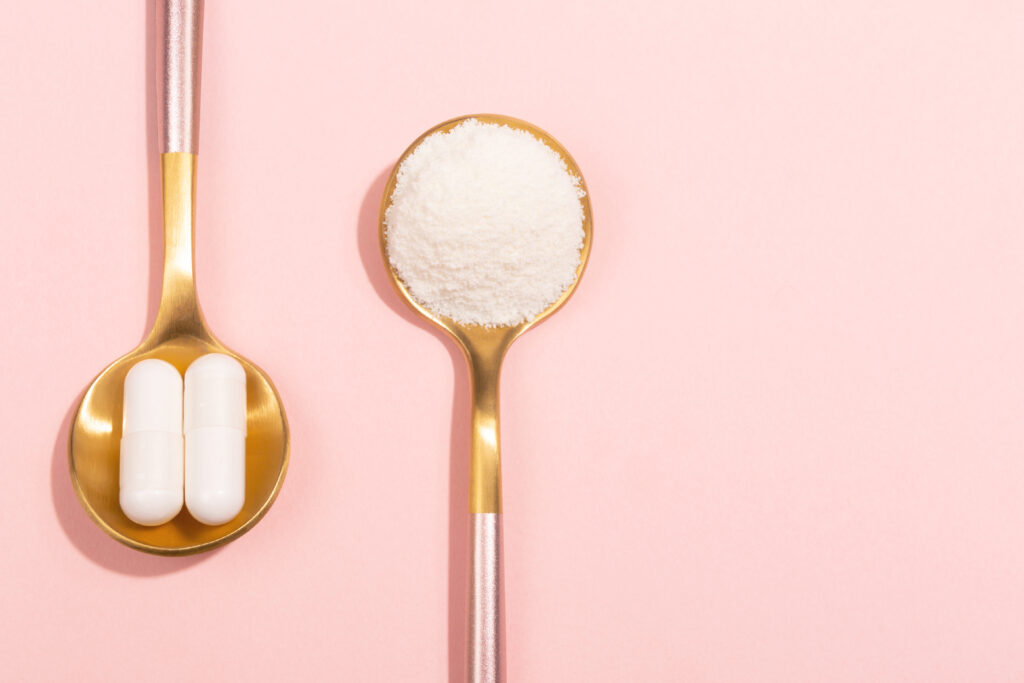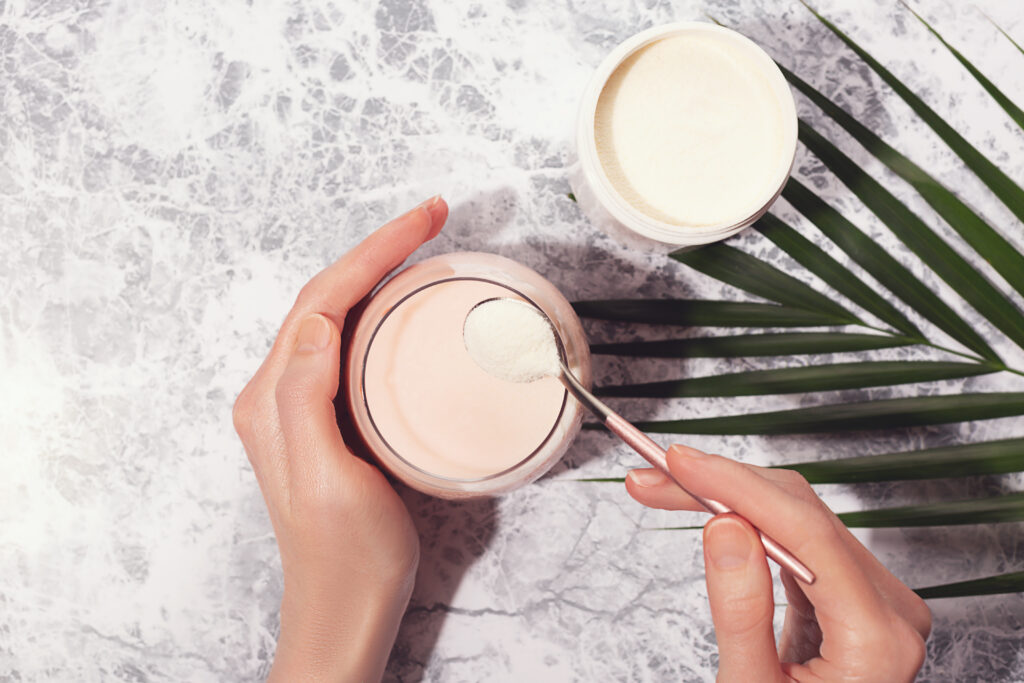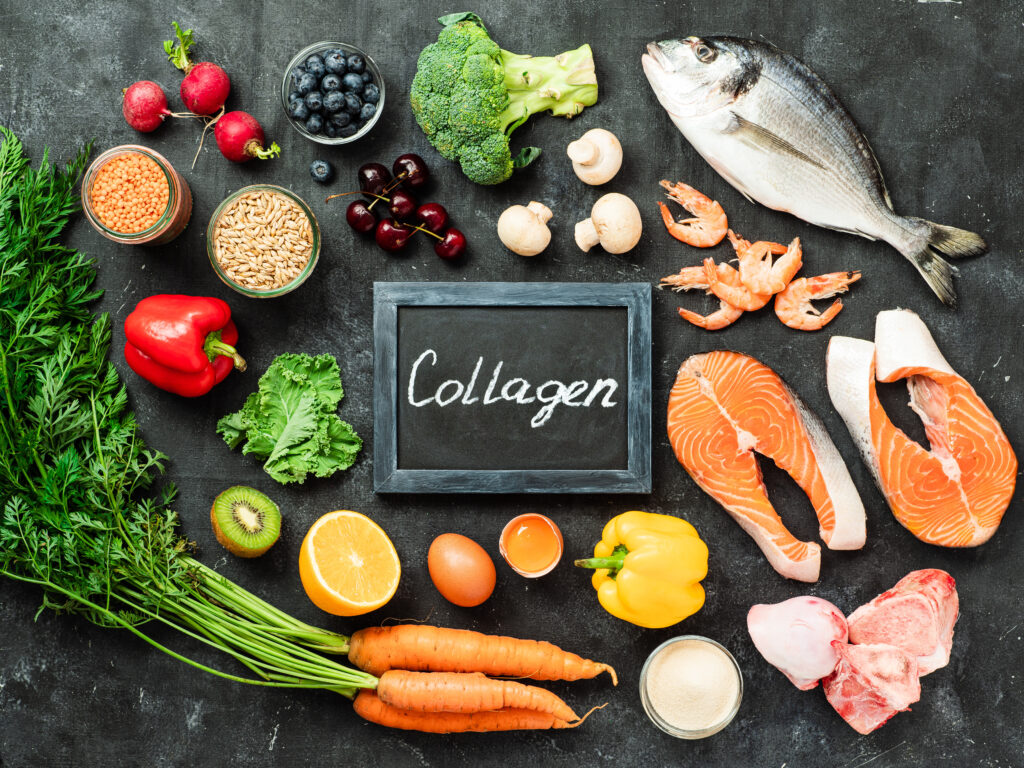As we age, the need for specific supplements enters the forefront of our minds, mainly collagen. Increasingly well known as the ‘fountain of youth,’ many more are asking whether aging adults should take collagen? Collagen supplements seem to be everywhere nowadays, as the wellness industry pushes to improve their consumer’s look and overall health, mainly focusing on aging skin, hair loss, and joint pain. But are collagen supplements essential, especially for your aging loved one?

What is collagen?
As the most abundant protein found in the body, collagen is the glue that holds it all together. Collagen is a significant building block found in bones, teeth, muscles, joints, and connective tissues. Collagen can also be observed in the blood vessels, cartilage, digestive tract, and intervertebral disc.
Furthermore, it is responsible for the skin’s smooth, youthful appearance and provides strength to bones and muscles. Naturally, this protein begins to break down overtime, which prompted its interest in the beauty and wellness industry. Thus, many individuals started to seek out collagen supplements in hopes of reversing signs of aging.

Joint pain
It is often believed that collagen could alleviate joint pain due to its link to connective tissues, keeping them fluid, flexible, and strong. Research is still limited in how taking dietary collagen supplements can keep our joints mobile, but current findings are assuring.
One 24-week study tested the effectiveness of collagen hydrolysate to improve joint pain in athletes in the treatment of osteoarthritis, the most common form of arthritis. The study showed that collagen hydrolysate could reduce the symptoms of pain that hurt athletic performance.
Additionally, in a German-Austrian research collaboration, a study detected change within the proteoglycan content in knee cartilage among individuals taking collagen hydrolysate for 24 weeks, suggesting that collagen can improve exercise-induced knee pain.
Skin health
One study exhibited that the use of two major collagen peptides with a higher content of prolyl-hydroxyproline (Pro-Hyp) and hydroxypropyl-glycine (Hyp-Gly) to more improvement in facial skin conditions, including facial skin moisture, elasticity, wrinkles, and roughness.
Additionally, another study examined the effects of a drinkable blend of collagen peptides along with a blend of antioxidants, vitamins, and minerals. Participants in the study saw improved skin hydration, elasticity, roughness, and density after three months of oral collagen mixed with other dermonutrients. Although these results are promising, further research is being explored at this time.

Should older people take collagen supplements?
As we age, we often eat less and contemplate if supplements can make up the difference. Harvard Public Health’s Dr. Sesso and Dr. Lo advise patients to improve their diets before reaching for supplements, noting that nutrients are most potent when they come from food. Whole foods are loaded with beneficial nutrients that can’t be found in a single supplement.
Before having your loved one turn to collagen supplements, consider naturally increasing their body’s collagen synthesis with collagen-rich foods and foods plentiful in nutrients. Although widely available in stores, collagen powder can pose two main risks for seniors: allergic reactions and gastrointestinal upset. Also, collagen supplements remain questionable on whether or not they work and if nutrients are absorbed into the body. Collagen supplements are also expensive, which can be burdensome on many senior’s budgets, a costly gamble, which could be spent on nutritious foods.
Overall, provide your loved ones with whole foods that will help them stay healthy and strong in the long run.

Foods that boost your loved ones body’s natural collagen production
Foods high in protein contain the amino acids glycine, proline, and hydroxyproline that produce collagen, thus stimulating collagen production. Prepare collagen-boosting dishes that include fish, eggs, chicken, dairy, legumes, and soy. For seniors on a soft food diet, include gelatin and or bone broth, both rich in collagen.
Also, keep in mind that several other nutrients are required to maintain collagen production. According to Harvard Public Health, both zinc and vitamin C are pivotal components in collagen production. Luckily, these two nutrients are readily available in most kitchens. Offer zinc through hearty whole grains, legumes, nuts, seeds, or shellfish. A refreshing bowl of berries, slices of oranges, or a leafy green salad will provide a healthy dose of vitamin C.

